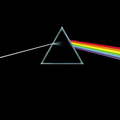Physics (nonfiction): Difference between revisions
(Created page with "'''Physics''' (from Ancient Greek: ''φυσική'' (''ἐπιστήμη'') ''phusikḗ'' (''epistḗmē'') "knowledge of nature", from φύσις ''phúsis'' "nature") is the...") |
No edit summary |
||
| Line 29: | Line 29: | ||
* [[Mathematics (nonfiction)]] | * [[Mathematics (nonfiction)]] | ||
* [[Light (nonfiction)]] | * [[Light (nonfiction)]] | ||
* [[Physicist (nonfiction)]] | |||
External links: | External links: | ||
Revision as of 07:42, 22 June 2016
Physics (from Ancient Greek: φυσική (ἐπιστήμη) phusikḗ (epistḗmē) "knowledge of nature", from φύσις phúsis "nature") is the natural science that involves the study of matter and its motion through space and time, along with related concepts such as energy and force.
More broadly, it is the general analysis of nature, conducted in order to understand how the universe behaves.
Physics is one of the oldest academic disciplines, perhaps the oldest through its inclusion of astronomy.
Over the last two millennia, physics was a part of natural philosophy along with chemistry, certain branches of mathematics, and biology, but during the scientific revolution in the 17th century, the natural sciences emerged as unique research programs in their own right.
According to Eugene Wigner:
Physics doesn't describe nature. Physics describes regularities among events and only regularities among events.
In the News
Dark Side of the Moon is "best rock album ever", according to new computational model of Sir Isaac Newton.
Fiction cross-reference
Nonfiction cross-reference
External links:
- Physics @ Wikipedia
